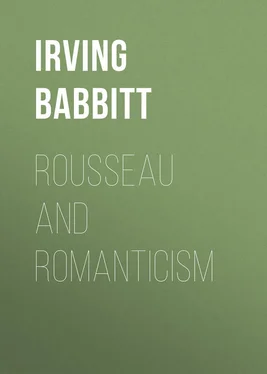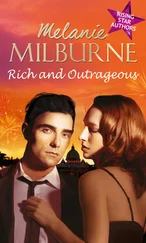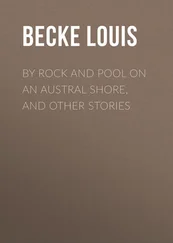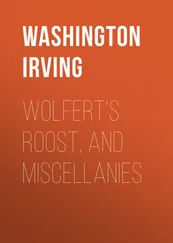Irving Babbitt - Rousseau and Romanticism
Здесь есть возможность читать онлайн «Irving Babbitt - Rousseau and Romanticism» — ознакомительный отрывок электронной книги совершенно бесплатно, а после прочтения отрывка купить полную версию. В некоторых случаях можно слушать аудио, скачать через торрент в формате fb2 и присутствует краткое содержание. Жанр: foreign_antique, foreign_prose, на английском языке. Описание произведения, (предисловие) а так же отзывы посетителей доступны на портале библиотеки ЛибКат.
- Название:Rousseau and Romanticism
- Автор:
- Жанр:
- Год:неизвестен
- ISBN:нет данных
- Рейтинг книги:5 / 5. Голосов: 1
-
Избранное:Добавить в избранное
- Отзывы:
-
Ваша оценка:
- 100
- 1
- 2
- 3
- 4
- 5
Rousseau and Romanticism: краткое содержание, описание и аннотация
Предлагаем к чтению аннотацию, описание, краткое содержание или предисловие (зависит от того, что написал сам автор книги «Rousseau and Romanticism»). Если вы не нашли необходимую информацию о книге — напишите в комментариях, мы постараемся отыскать её.
Rousseau and Romanticism — читать онлайн ознакомительный отрывок
Ниже представлен текст книги, разбитый по страницам. Система сохранения места последней прочитанной страницы, позволяет с удобством читать онлайн бесплатно книгу «Rousseau and Romanticism», без необходимости каждый раз заново искать на чём Вы остановились. Поставьте закладку, и сможете в любой момент перейти на страницу, на которой закончили чтение.
Интервал:
Закладка:
If, then, one is to be a sound individualist, an individualist with human standards – and in an age like this that has cut loose from its traditional moorings, the very survival of civilization would seem to hinge on its power to produce such a type of individualist – one must grapple with what Plato terms the problem of the One and the Many. My own solution of this problem, it may be well to point out, is not purely Platonic. Because one can perceive immediately an element of unity in things, it does not follow that one is justified in establishing a world of essences or entities or “ideas” above the flux. To do this is to fall away from a positive and critical into a more or less speculative attitude; it is to risk setting up a metaphysic of the One. Those who put exclusive emphasis on the element of change in things are in no less obvious danger of falling away from the positive and critical attitude into a metaphysic of the Many. 4 4 These two tendencies in Occidental thought go back respectively at least as far as Parmenides and Heraclitus.
This for example is the error one finds in the contemporary thinkers who seem to have the cry, thinkers like James and Bergson and Dewey and Croce. They are very far from satisfying the requirements of a complete positivism; they are seeking rather to build up their own intoxication with the element of change into a complete view of life, and so are turning their backs on one whole side of experience in a way that often reminds one of the ancient Greek sophists. The history of philosophy since the Greeks is to a great extent the history of the clashes of the metaphysicians of the One and the metaphysicians of the Many. In the eyes of the complete positivist this history therefore reduces itself largely to a monstrous logomachy.
Life does not give here an element of oneness and there an element of change. It gives a oneness that is always changing . The oneness and the change are inseparable. Now if what is stable and permanent is felt as real, the side of life that is always slipping over into something else or vanishing away entirely is, as every student of psychology knows, associated rather with the feeling of illusion. If a man attends solely to this side of life he will finally come, like Leconte de Lisle, to look upon it as a “torrent of mobile chimeras,” as an “endless whirl of vain appearances.” To admit that the oneness of life and the change are inseparable is therefore to admit that such reality as man can know positively is inextricably mixed up with illusion. Moreover man does not observe the oneness that is always changing from the outside; he is a part of the process, he is himself a oneness that is always changing. Though imperceptible at any particular moment, the continuous change that is going on leads to differences – those, let us say, between a human individual at the age of six weeks and the same individual at the age of seventy – which are sufficiently striking: and finally this human oneness that is always changing seems to vanish away entirely. From all this it follows that an enormous element of illusion – and this is a truth the East has always accepted more readily than the West – enters into the idea of personality itself. If the critical spirit is once allowed to have its way, it will not rest content until it has dissolved life into a mist of illusion. Perhaps the most positive and critical account of man in modern literature is that of Shakespeare:
We are such stuff
As dreams are made on, and our little life
Is rounded with a sleep.
But, though strictly considered, life is but a web of illusion and a dream within a dream, it is a dream that needs to be managed with the utmost discretion, if it is not to turn into a nightmare. In other words, however much life may mock the metaphysician, the problem of conduct remains. There is always the unity at the heart of the change; it is possible, however, to get at this real and abiding element and so at the standards with reference to which the dream of life may be rightly managed only through a veil of illusion. The problem of the One and the Many, the ultimate problem of thought, can therefore be solved only by a right use of illusion. In close relation to illusion and the questions that arise in connection with it is all that we have come to sum up in the word imagination. The use of this word, at least in anything like its present extension, is, one should note, comparatively recent. Whole nations and periods of the past can scarcely be said to have had any word corresponding to imagination in this extended sense. Yet the thinkers of the past have treated, at times profoundly, under the head of fiction or illusion the questions that we should treat under the head of imagination. 5 5 In his World as Imagination (1916) E. D. Fawcett, though ultra-romantic and unoriental in his point of view, deals with a problem that has always been the special preoccupation of the Hindu. A Hindu, however, would have entitled a similar volume The World as Illusion (māyā). Aristotle has much to say of fiction in his Poetics but does not even use the word imagination (φαντασία). In the Psychology , where he discusses the imagination, he assigns not to it, but to mind or reason the active and creative rôle (νοῦς ποιητικός). It is especially the notion of the creative imagination that is recent. The earliest example of the phrase that I have noted in French is in Rousseau’s description of his erotic reveries at the Hermitage ( Confessions , Livre IX).
In the “Masters of Modern French Criticism” I was above all preoccupied with the problem of the One and the Many and the failure of the nineteenth century to deal with it adequately. My effort in this present work is to show that this failure can be retrieved only by a deeper insight into the imagination and its all-important rôle in both literature and life. Man is cut off from immediate contact with anything abiding and therefore worthy to be called real, and condemned to live in an element of fiction or illusion, but he may, I have tried to show, lay hold with the aid of the imagination on the element of oneness that is inextricably blended with the manifoldness and change and to just that extent may build up a sound model for imitation. One tends to be an individualist with true standards, to put the matter somewhat differently, only in so far as one understands the relation between appearance and reality – what the philosophers call the epistemological problem. This problem, though it cannot be solved abstractly and metaphysically, can be solved practically and in terms of actual conduct. Inasmuch as modern philosophy has failed to work out any such solution, it is hard to avoid the conclusion that modern philosophy is bankrupt, not merely from Kant, but from Descartes.
The supreme maxim of the ethical positivist is: By their fruits shall ye know them. If I object to a romantic philosophy it is because I do not like its fruits. I infer from its fruits that this philosophy has made a wrong use of illusion. “All those who took the romantic promises at their face value,” says Bourget, “rolled in abysses of despair and ennui.” 6 6 Essay on Flaubert in Essais de Psychologie contemporaine .
If any one still holds, as many of the older romanticists held, that it is a distinguished thing to roll in abysses of despair and ennui, he should read me no further. He will have no sympathy with my point of view. If any one, on the other hand, accepts my criterion but denies that Rousseauistic living has such fruits, it has been my aim so to accumulate evidence that he will be confronted with the task of refuting not a set of theories but a body of facts. My whole method, let me repeat, is experimental, or it might be less ambiguous to say if the word were a fortunate one, experiential. The illustrations I have given of any particular aspect of the movement are usually only a small fraction of those I have collected – themselves no doubt only a fraction of the illustrations that might be collected from printed sources. M. Maigron’s investigation 7 7 Le Romantisme et les mœurs (1910).
into the fruits of romantic living suggests the large additions that might be made to these printed sources from manuscript material.
Интервал:
Закладка:
Похожие книги на «Rousseau and Romanticism»
Представляем Вашему вниманию похожие книги на «Rousseau and Romanticism» списком для выбора. Мы отобрали схожую по названию и смыслу литературу в надежде предоставить читателям больше вариантов отыскать новые, интересные, ещё непрочитанные произведения.
Обсуждение, отзывы о книге «Rousseau and Romanticism» и просто собственные мнения читателей. Оставьте ваши комментарии, напишите, что Вы думаете о произведении, его смысле или главных героях. Укажите что конкретно понравилось, а что нет, и почему Вы так считаете.












